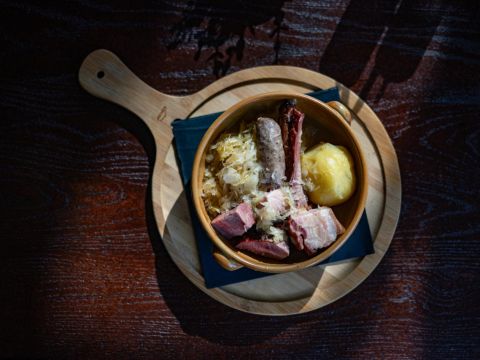The Land of Golden Potatoes and Warm Hearths: Discover the Rich Gastronomy of Lika
Lika is a land of mountains and silence, of vast fields scented with sage and wild thyme — a home of harsh winters and warm hearths. Where the mists veil the peaks of Velebit and rivers sink beneath the karst only to be reborn again, food has never been just a necessity. It has been comfort, a vow to survival, a song about the land and the people who learned to live amid the rawness of nature and the richness of simplicity.
Lika is not fertile in the traditional sense. Its soil is rocky and sparse, yet from this very barrenness springs pride. Food in Lika bears the mark of hard work, and every bite carries the taste of hands that plowed, sowed, harvested, and milled grain in old watermills.
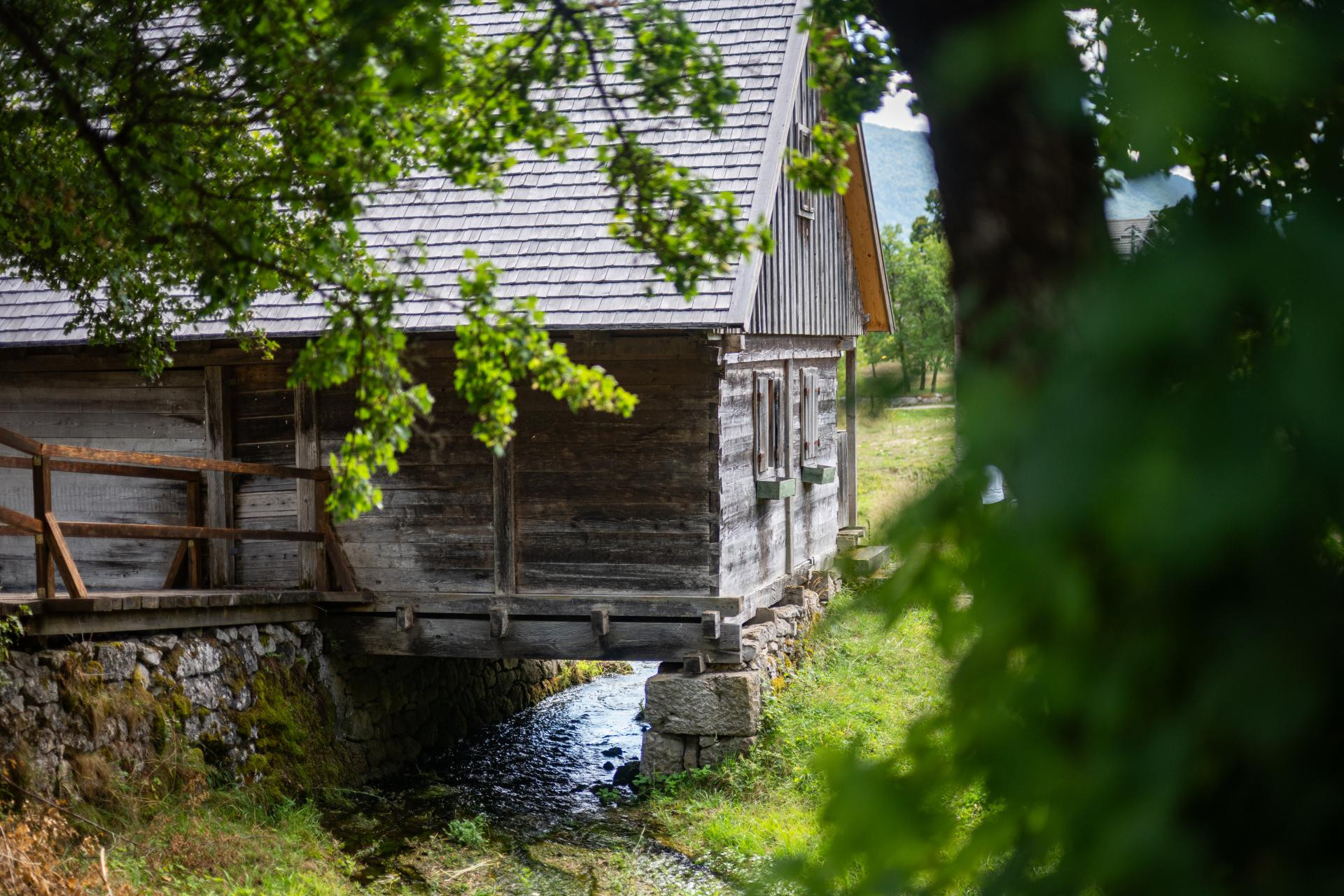
In the heart of every Lika home, the table is sacred, and on it rests bread that is round, heavy, and fragrant. Lika bread, baked under the peka (iron bell) or in a wood-fired oven, made from local wheat or corn, is not just food but a symbol of togetherness. Alongside it comes lička basa — a fresh cheese mixed with cream, soft and white as the snow that covers the Gacka Valley in winter. Basa is more than a dairy product; it is a metaphor for the gentleness of Lika — that hidden, warm heart beating beneath its rugged mountain face.
The greatest pride of the region
When speaking of Lika, one cannot overlook lamb — the queen of the local table. Roasted on a spit over the embers of beech logs, it slowly sweats as the aroma of smoke infuses the meat, creating a flavor that lingers for a lifetime. That lamb is more than food — it is a symbol of celebration, a ritual, a sign of Sundays, weddings, and holidays. Every occasion begins with the scent of smoke and the crackle of crisp skin under the knife.
And alongside the lamb come the famous Lika potatoes, perhaps the region’s most recognized pride. Heavy, golden, and slightly sweet, grown at altitudes where the days are short and nights cool, the Lika potato has become a brand of its own. Whether pan-fried, baked under the peka, cooked in stews, or roasted in their skins with a pinch of salt and lard — they are always a simple yet perfect addition to every meal.
In winter months, homes are filled with the scent of smoked meat and bacon. Smoke from the smokehouse, mingled with the aroma of beech and spruce wood, permeates sausages and hams that will feed the family through the long, cold season. Golden, crispy pork cracklings are a symbol of winter abundance — and of the cleverness that turns little into something that warms the soul.
Under the peka, not only meat but also potatoes with onions, cabbage, and even apples are baked — the heat of the fire giving them a dark crust and honey-like sweetness. The peka is the heart of Lika cuisine. Alongside it, the lički lonac (Lika pot) — a humble yet rich dish — is always prepared in old clay pots. Inside, layers of cabbage, potatoes, smoked meat, sausages, and root vegetables are stacked, drizzled with water, and left to simmer gently until the house fills with the scent of smoke and garlic. In Lika, people say that a true pot should never be stirred.
The shepherd’s tradition
On every table you’ll find cornmeal porridge (žganci), drizzled with melted butter or homemade cream. Similar is trganac, handmade torn pasta, cooked and then topped with basa or homemade lard.
In spring, when the snow retreats from the mountains, the table welcomes nettle, wild garlic, sorrel, and dandelion. They are used for soups, stews, and pies. The older women say that this “green food cleanses you” and restores strength after a long winter.
In summer, on sunburned meadows, porcini and chanterelle mushrooms are gathered — dried on windowsills or strung on thread. In winter, when added to soups, they fill the house with the scent of the forest.
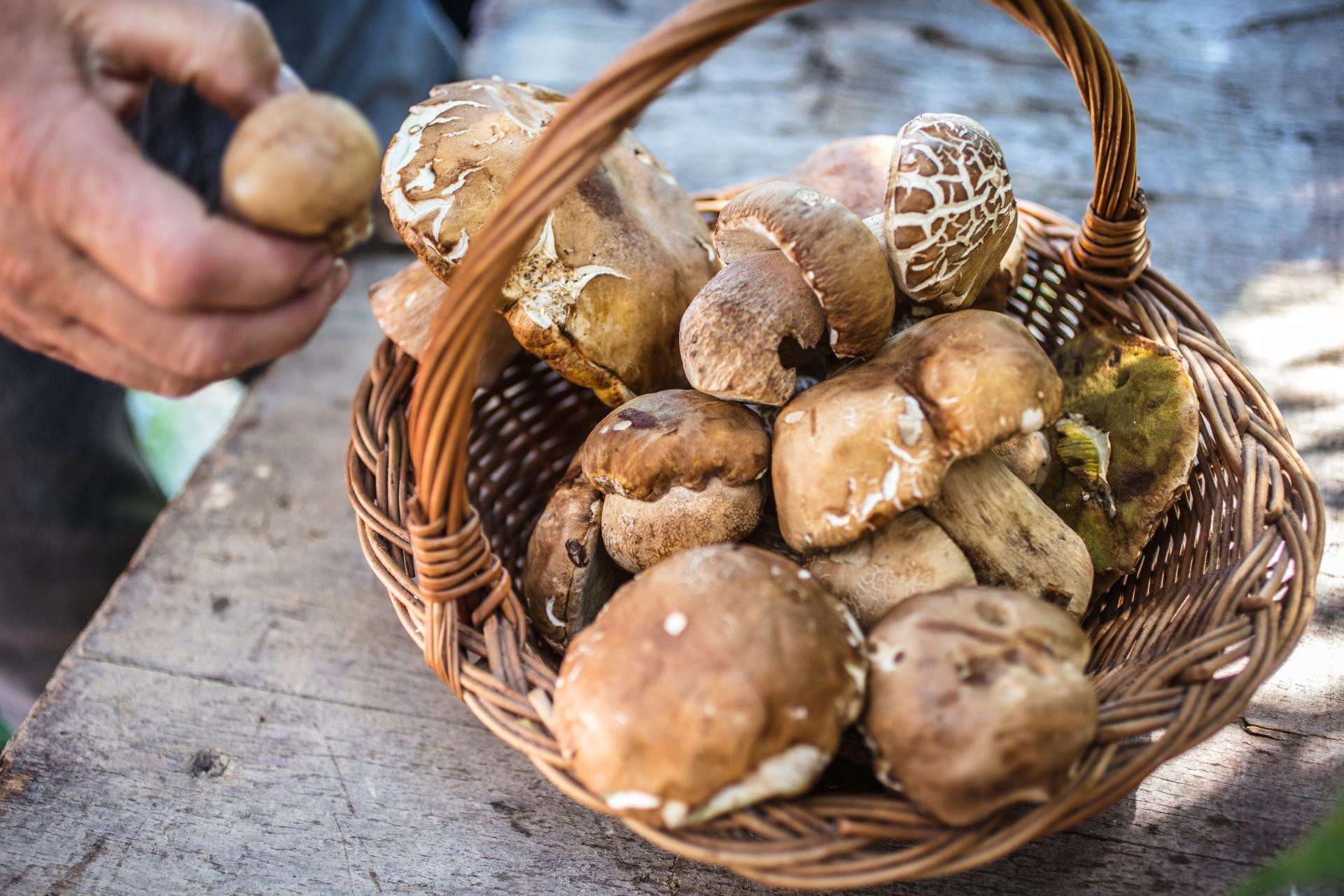

The shepherd’s heritage of Lika still lives on in the mountain areas. Sheep cheese from Velebit is sharp and full-flavored, while cow’s cheese from Krasno is gentler, carrying within it the breath of the Velebit meadows. In summer, when pastures bloom, sheep and cows graze on herbs found only here — immortelle, thyme, mountain wormwood. Every herb adds its own story to the cheese, every cheese its own fragrance and character.
Food that redefines the meaning of luxury
Lika is full of contrasts: forests that hide mushrooms and game, rivers that offer trout, and meadows that provide wild herbs. Mushroom soups, Gacka trout fried in butter, game stewed in wine with blueberries — every dish tells a story of man’s bond with nature.
Visit me
The scents, sounds, sights, and flavors of this region will leave an unforgettable mark on your memory. The series “Visit Me”, which you can follow on the social media and websites of the Croatian National Tourist Board, perfectly conveys this experience through four episodes that take you on a journey through the hearts and souls of some of Croatia’s most beautiful — and often forgotten — regions.
Autumn brings blackberries and blueberries, plum jams, and pear and plum brandies that warm both body and soul. In Lika, rakija is a greeting, a medicine, a ritual, and a story all at once.
Lika’s sweets are simple yet sincere: uštipci (fried dough), pancakes with homemade jam, doughnuts, and orehnjača (walnut roll). There are no fancy cakes here, but there is an abundance of warmth. Each treat is made with what the household provides — flour, eggs, milk, sugar, and plenty of love.
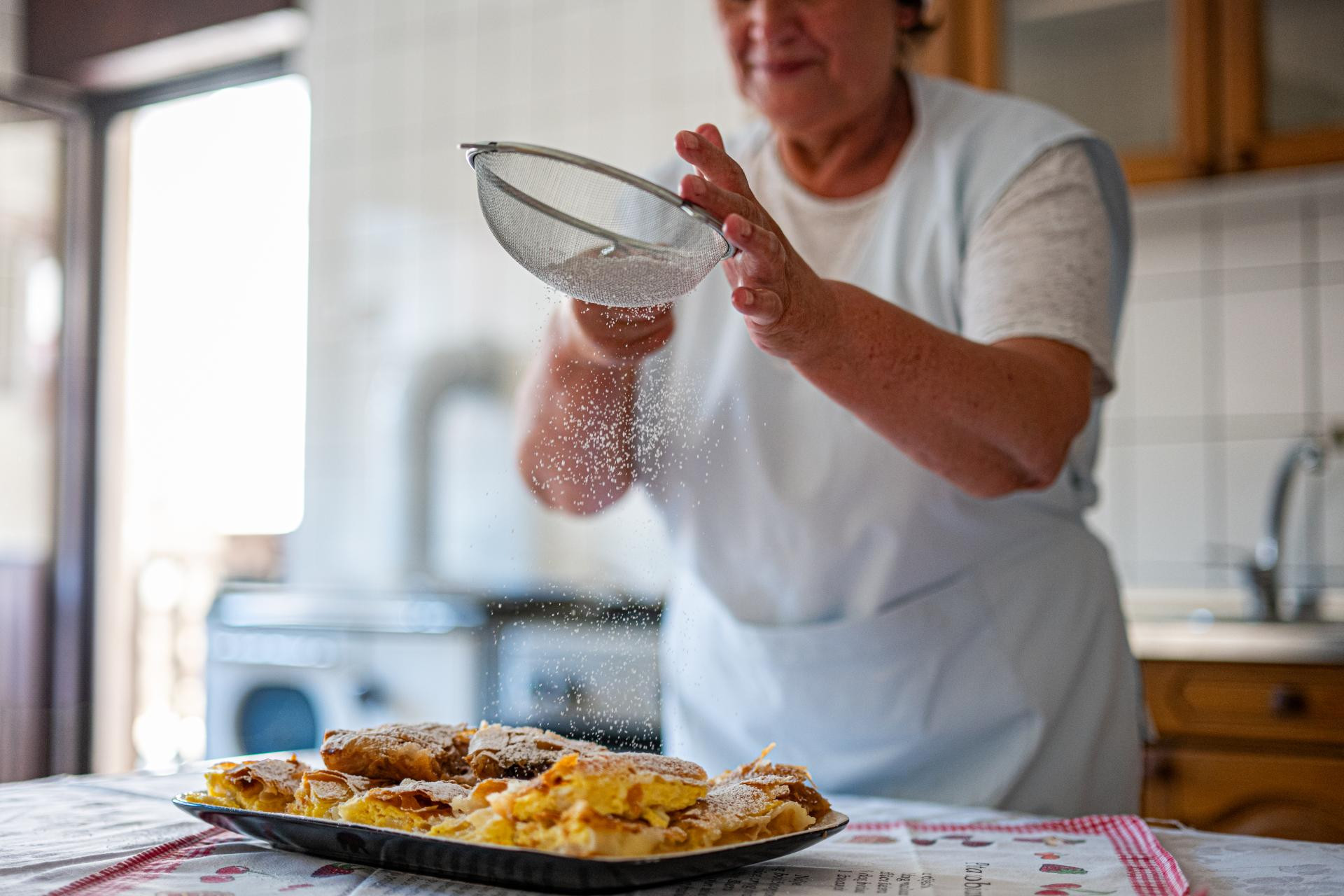
Lika Buša Goulash
1 kg of Lika Buša beef
2–3 onions
A few cloves of garlic
Carrot, parsley, a bit of celery
Parsley leaves
Bay leaves
Dark Velebit beer (or any dark beer)
Ground red paprika
Salt, pepper
Fat or oil
Wine
Sauté the onions in fat until translucent, then add the chopped root vegetables. Pour in water or meat stock and let simmer until the vegetables soften. Add the meat cut into bite-sized pieces, fry briefly, then pour in enough water or stock to cover the meat and add a few bay leaves. Cook until the meat is tender. Toward the end of cooking, add garlic and chopped parsley. Season with salt and pepper, and cook small dumplings made from flour, eggs, and a little oil directly in the pot. Serve with homemade bread.
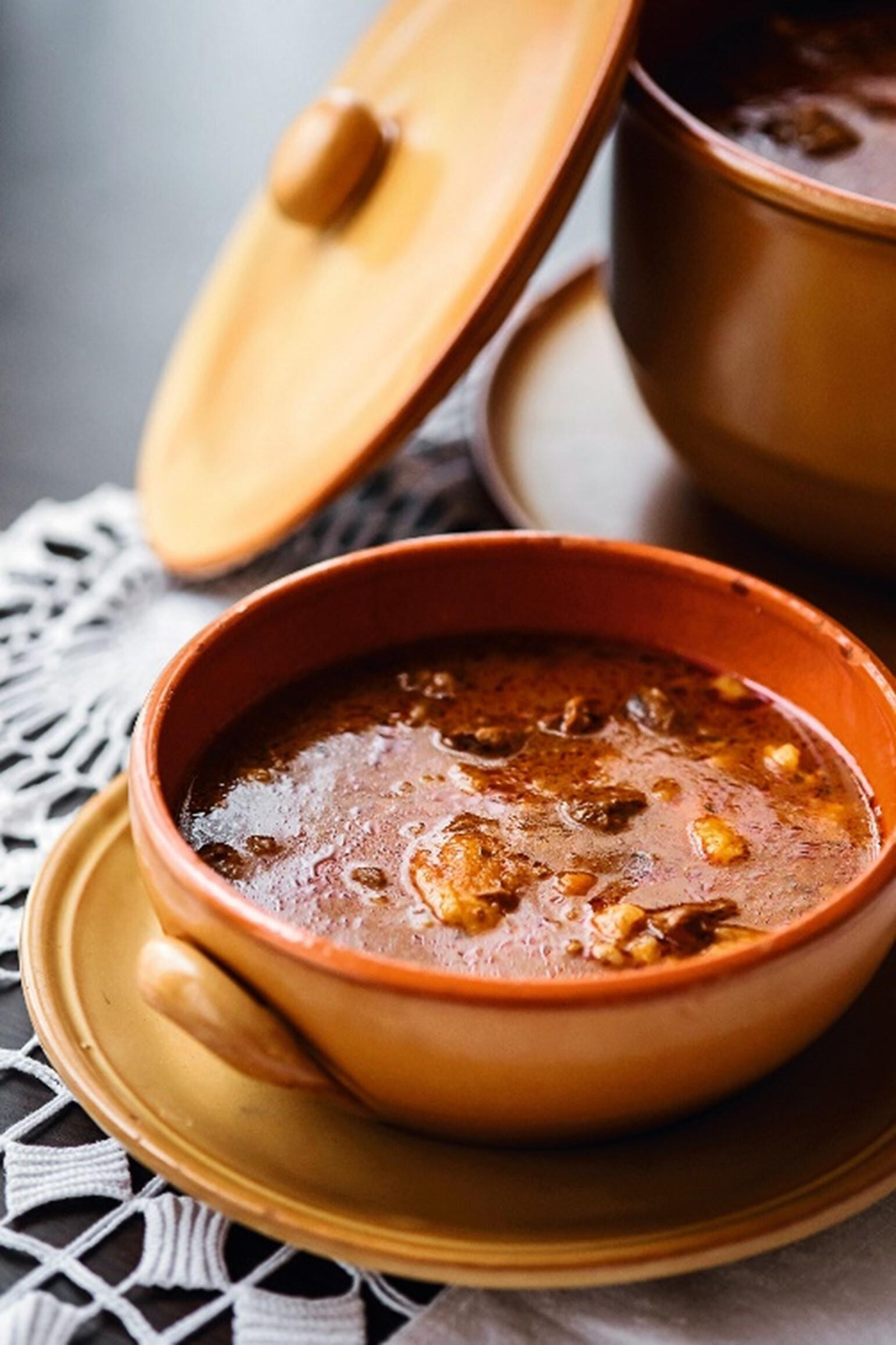

Downloaded from: Jutarnji.hr
News - All


